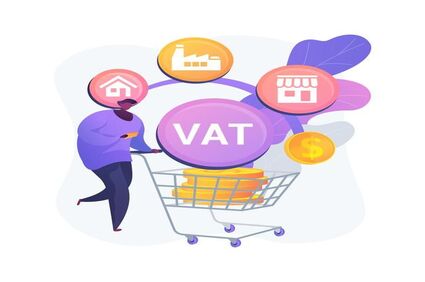Kenswitch Limited v. Commissioner of Domestic Taxes Tax Appeal No. E1336 of 2024
Background
The Tax Appeals Tribunal has delivered a landmark decision in favour of Kenswitch Limited, a licensed Payment Service Provider (PSP), holding that PSP commission income qualifies as VAT-exempt financial services under Paragraph 1(b) and 1(m) of the First Schedule to the VAT Act, 2013. In its decision in Kenswitch Limited v Commissioner of Domestic Taxes (TAT Appeal E1336 of 2024), the Tribunal set aside VAT assessments totaling Kshs 41.6 million, strengthening precedent for fintechs engaged in payment switching, routing, and settlement services in Kenya.
Kenswitch’s Argument
- Kenswitch argued that the transaction a financial service, plain and simple. Kenswitch facilitates the transfer, receipt, and settlement of money between banks and cardholders.
- Kenswitch mentioned that they do not sell ATM software and KRA wrongly applied the First Schedule of the VAT Act, which excludes “the supply of automated teller machines and the software to run it.”
- Kenswitch averred that the interchange fee charged to cardholders represents one financial transaction and that KRA artificially split this transaction just to slap VAT on Kenswitch’s portion, which goes against established case law.
- Kenswitch argued that KRA already registered Kenswitch for excise duty under the Excise Duty Act, 2015, explicitly recognizing its services as “money transfer services
- Kenswitch mentioned that the assessment notice was dodgy. It was titled “Preliminary Verification Findings,” which is misleading under Section 78(2)(d) of the Tax Procedures Act.
KRA’s Argument
- KRA argued that the service is an ICT service, not a financial service citing that Kenswitch operates a switching platform using third-party software excluded from exemption under the VAT Act.
- KRA averred that under the Banking Act, a financial institution accepts deposits from the public and lends or invests those funds and Kenswitch does neither, so it can’t provide “financial services” for VAT purposes.
- KRA cited section 5(1)(a) of the VAT Act that requires VAT on taxable supplies made by registered persons and argued that Kenswitch’s services to financial institutions are taxable.
- KRA argued that minor defects in the assessment notice don’t invalidate it under Section 78 of the Tax Procedures Act and that the notice substantially met legal requirements and clearly identified Kenswitch as the taxpayer.
Tribunal’s Decision
The Tribunal echoed the reasoning in Pesapal Limited v Commissioner of Domestic Taxes [2025] KEHC 12284, where it was held that PSP activities that involve “the issue, transfer, receipt, or dealing with money” qualify as VAT-exempt financial services under Paragraph 1(b) of the VAT Act.
- The Tribunal backed the High Court’s reasoning in a previous case ruling that PSP services get classified by what they actually do, not the technology they use to do it. Kenswitch’s core work) is fundamentally financial in nature.
- The VAT Act exempts “the issue, transfer, receipt or any other dealing with money, including money transfer services.” Kenswitch’s real-time movement of funds on behalf of regulated financial institutions clearly qualifies as dealing with money.
- The Tribunal found that Kenswitch doesn’t supply ATMs or ATM software. It provides network and settlement infrastructure for interbank transactions, which is outside this narrow exclusion.
- The Tribunal found that Kenswitch’s commission for facilitating financial transactions on behalf of member banks qualifies as “financial services provided on behalf of another on a commission basis” and this commission income is explicitly exempt.
- The Tribunal rejected KRA’s reliance on the Banking Act’s definition of “financial institution.” The VAT Act exempts supplies based on what they are, not who provides them.
- The Tribunal reinforced that any ambiguity in tax law gets resolved in favor of the taxpayer.
- The VAT Act does not distinguish between financial services delivered manually or digitally… what matters is the nature of the supply.
Conclusion
This ruling carries serious weight for payment service providers, fintech companies, and the broader digital financial services sector:
- Licensed PSPs providing switching, routing, payment processing, or settlement services can treat their commission income as VAT-exempt financial services under Paragraphs 1(b) and 1(m).
- The Tribunal’s focus on functional substance over technological form protects digital-first business models.
- Taxpayers currently under audit or assessment for similar issues based on the ruling now have strong precedent for objection and appeal.
- Digital payment platforms performing functions involving the “transfer, receipt or dealing with money” may qualify for exemption, provided they operate under proper regulatory authorization.
- The decision makes clear that regulatory classification matters licensed entities have stronger grounds for VAT exemption than unlicensed operators providing similar services.
Recommendations
- This ruling gives PSP service providers grounds for VAT refund claims for overpaid taxes within the statutory limitation period.
- Banks and other regulated entities that engage PSP services should review the VAT treatment of service fees paid to these providers. Where PSPs incorrectly charged VAT, institutions may have grounds for refund claims.
- Make sure contracts, invoices, and service descriptions clearly reflect the financial nature of what you provide.
- Reach out to professional tax advisors and tax consultants for PSP-specific VAT audits or refund claims.
If you operate a payment service platform, fintech solution, or digital financial service and have questions about your VAT treatment, we can help.
At Intelpoint Consulting, Your Tax Lawyers with a Personal Touch, our tax advisory team assists businesses in reviewing assessments, filing objections, pursuing refunds and ensuring compliance with current tax laws.
Whether you’re facing an audit, received a demand notice, or simply want clarity on how this ruling affects your operations, we are here to provide practical, experienced guidance.
For further details or clarification on how these regulations may impact your operations, please do not hesitate to contact our professional tax team.
Intelpoint Consulting
info@intelpointconsulting.com
+254 714 348 150
Disclaimer: This alert is for informational purposes only and does not constitute legal or tax advice. Please contact us to discuss your specific circumstances.

